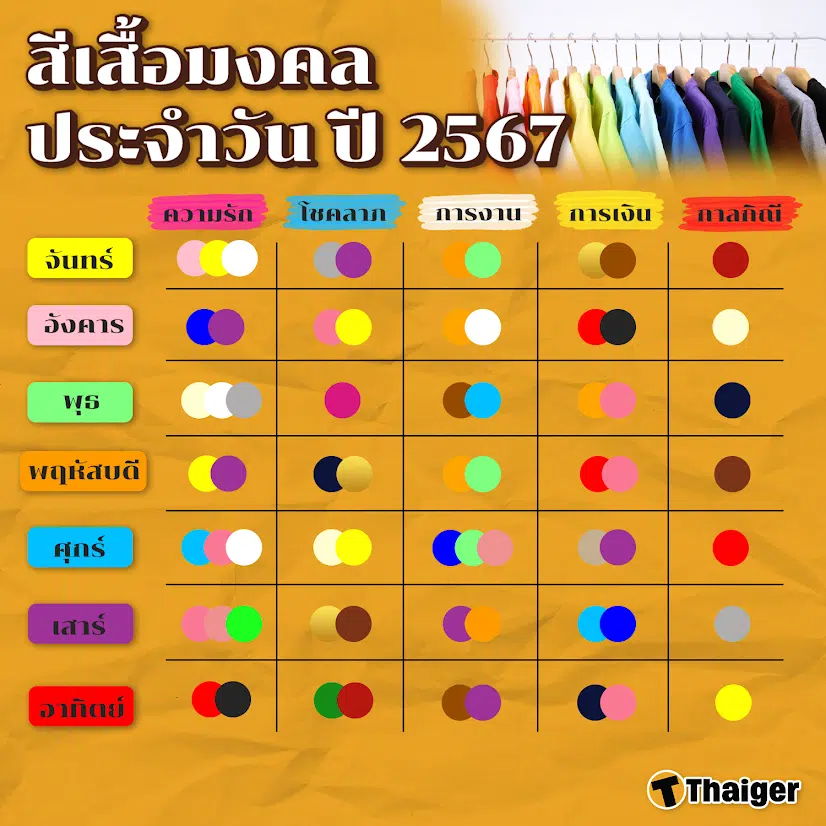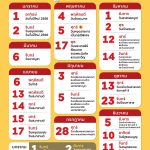
เคล็ดลับวันดีเสริมดวงชะตาในปี 2568
[เคล็ดลับวันดีเสริมดวงชะตาในปี 2568] Executive Summary […]
[เคล็ดลับวันดีเสริมดวงชะตาในปี 2568]

Executive Summary

This article explores the concept of auspicious days in the year 2568, providing insights into how to harness their positive energies for personal and professional growth. We will delve into the significance of specific days based on traditional Thai beliefs, offering practical tips on how to leverage them for optimal outcomes. By understanding the power of favorable days and incorporating appropriate rituals, readers can potentially enhance their luck, attract abundance, and navigate challenges with greater ease.

Introduction
The concept of auspicious days is deeply ingrained in Thai culture, with many believing that specific days hold unique energies that can influence various aspects of life. While there’s no scientific evidence to support these claims, the tradition of seeking favorable days remains a significant part of Thai society. In 2025, the year 2568 in the Buddhist Era, individuals can tap into the power of these auspicious days by understanding the elements associated with them and incorporating appropriate rituals. This article offers a practical guide to help readers understand the concept and make informed decisions about how to best leverage these days for personal and professional benefit.
วันมงคล (Auspicious Days)
Auspicious days, or “wan mongkol” in Thai, are considered to be particularly favorable for starting new ventures, making important decisions, and seeking blessings. They are often associated with specific astrological alignments and lunar phases, believed to amplify positive energies.
- วันพระ (Buddhist Holy Days): These days are considered highly auspicious due to their religious significance. They mark important events in the life of Buddha and offer a chance to reflect, practice mindfulness, and seek blessings.
- วันเกิด (Birthdays): Birthdays are personal auspicious days, representing a time of renewal and celebration. Traditionally, this is a day for expressing gratitude, seeking blessings, and setting intentions for the year ahead.
- วันขึ้นปีใหม่ (New Year’s Day): This day marks the beginning of a new cycle, offering a fresh start and an opportunity to set resolutions for the year. It is considered an auspicious day for setting intentions and making plans for the future.
- วันตรุษจีน (Chinese New Year): This festive celebration is considered auspicious in Thai culture as well, especially for those of Chinese descent. It’s a time for renewal, prosperity, and family gatherings.
- วันสำคัญทางศาสนา (Religious Holidays): Other religious holidays, such as Makha Bucha Day and Visakha Bucha Day, are also considered auspicious, providing opportunities for spiritual reflection and growth.
วันอุบาทว์ (Inauspicious Days)
In contrast to auspicious days, inauspicious days, or “wan ubat” in Thai, are believed to be less favorable for certain activities. These days are often associated with negative astrological influences and are generally avoided for important events.
- วันเพ็ญ (Full Moon Days): While full moon days are often associated with romanticism and spiritual awakening, they are also considered inauspicious in Thai tradition for starting new projects or making significant decisions.
- วันแรม 15 ค่ำ (15th Night of the Waning Moon): This day is believed to carry a heavier energy, making it less suitable for celebrations or starting new ventures.
- วันพระ (Buddhist Holy Days): While Buddhist Holy Days are generally auspicious, there are certain days, such as the “Khao Phansa” (beginning of Buddhist Lent), that are considered inauspicious for certain activities like starting new businesses.
- วันศุกร์ (Friday): Friday is generally considered an inauspicious day for Thai Buddhists, especially for major life events such as weddings or funerals.
- วันอังคาร (Tuesday): In Thai tradition, Tuesday is also associated with negativity and is often avoided for important decisions.
เคล็ดลับวันดี เสริมดวงชะตา (Tips for Enhancing Luck on Auspicious Days)
To maximize the positive energies of auspicious days, it’s beneficial to incorporate traditional practices and rituals. These can include:
- การทำบุญ (Making Merit): Performing good deeds, such as donating to charity or offering food to monks, is believed to bring positive karma and increase good fortune.
- การไหว้พระ (Praying at Temples): Visiting temples to pray for blessings, guidance, and protection is a common practice on auspicious days.
- การขอพร (Making Wishes): Writing down wishes and placing them in temples or shrines is believed to manifest positive outcomes.
- การใส่เสื้อผ้าสีมงคล (Wearing Auspicious Colors): Certain colors are associated with good fortune and luck, so wearing them on auspicious days is believed to enhance positive energy.
- การจัดบ้าน (Cleaning and Organizing): Cleaning and organizing your home on auspicious days is seen as a way to create positive energy and attract good fortune.
Pros and Cons
The concept of auspicious days presents both advantages and disadvantages.
Pros:
- Sense of Hope and Optimism: The belief in auspicious days can provide individuals with a sense of hope and optimism, encouraging them to approach life with a positive outlook.
- Cultural Heritage: These beliefs are an integral part of Thai cultural heritage, offering a connection to tradition and history.
- Motivation for Positive Actions: The emphasis on good deeds and spiritual practices can inspire individuals to act with kindness and compassion.
Cons:
- Lack of Scientific Evidence: There’s no scientific evidence to support the claims that certain days possess special energies.
- Superstition: The reliance on auspicious days can lead to superstitious thinking, potentially impacting rational decision-making.
- Potential for Exploitation: The belief in auspicious days can be exploited by individuals seeking to profit from others’ belief systems.
Conclusion
While the concept of auspicious days is rooted in tradition and cultural beliefs, it’s important to approach it with a balanced perspective. Ultimately, it’s up to each individual to decide how much weight they give to these beliefs. Whether you’re a staunch believer or simply curious, understanding the concept can provide insights into Thai culture and potentially inspire you to incorporate positive practices into your life.
By embracing the positive aspects of these traditions and approaching them with an open mind, you can harness the power of auspicious days to attract good fortune, cultivate a sense of hope, and create a more fulfilling life.
Keywords
- Auspicious Days
- Thai Culture
- Buddhist Era
- Year 2568
- Luck and Fortune









